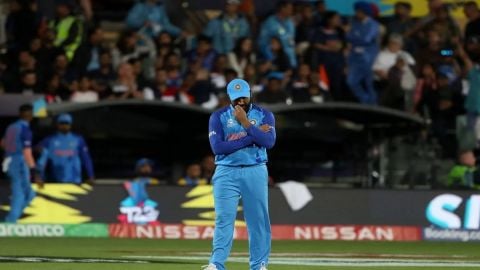
T20 World Cup: Anil Kumble thinks separate teams in red-ball, white-ball cricket is the way forward (Image Source: IANS)
Former India captain and head coach Anil Kumble thinks that fielding separate teams in red-ball and white-ball cricket is the way forward for all the teams in international cricket.
England's tremendous success in white-ball cricket and leading them to being 2019 ODI World Cup winners as well as champions of 2022 T20 World Cup has reignited the debate for teams having different teams for red-ball and white-ball cricket matches.
"Definitely, you need separate teams. You need, certainly, T20 specialists. I think what this English team has shown and even the last (T20) World Cup champions Australia have shown is that you need to invest in a lot of all-rounders. Look at the batting order."

